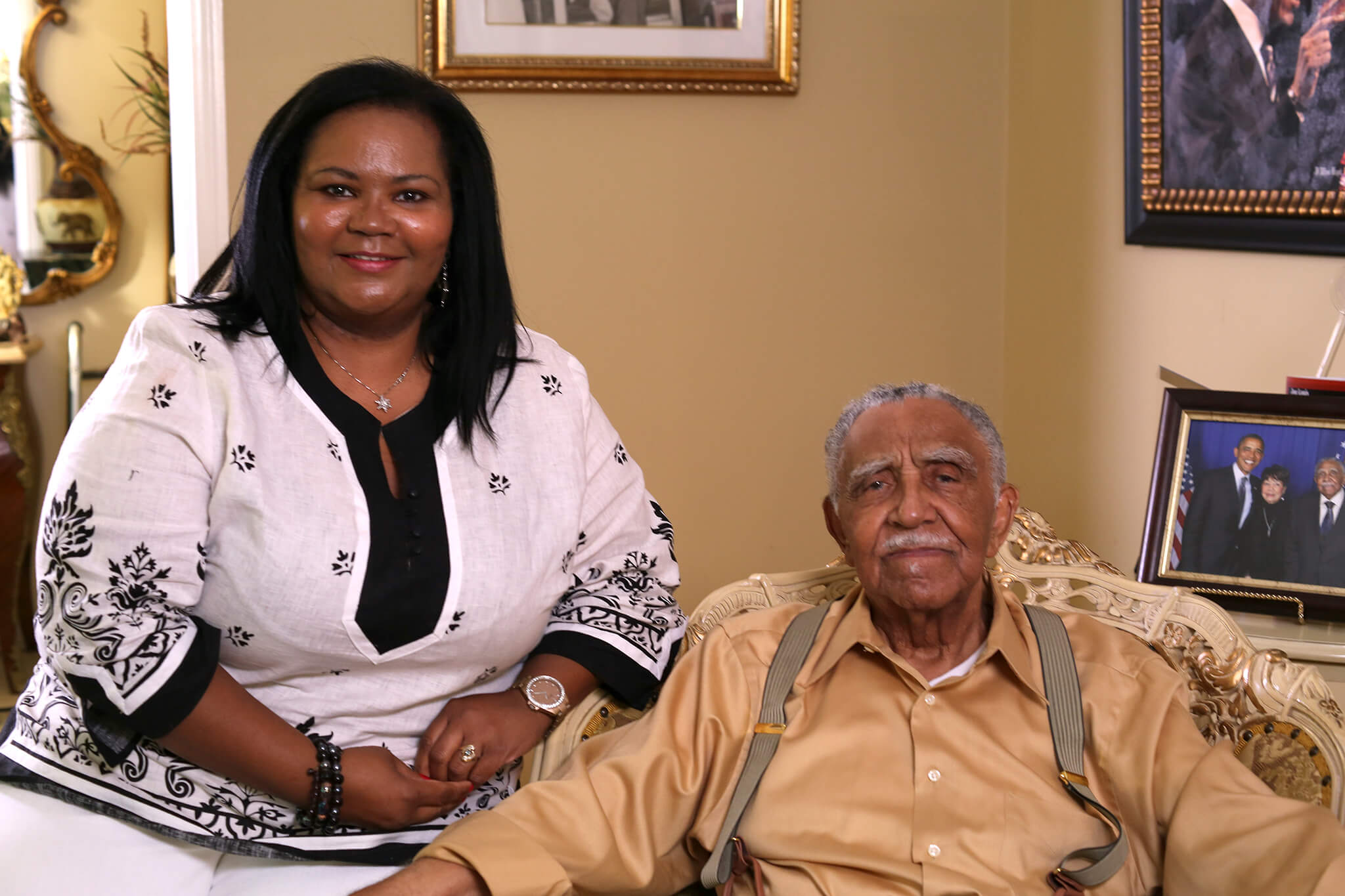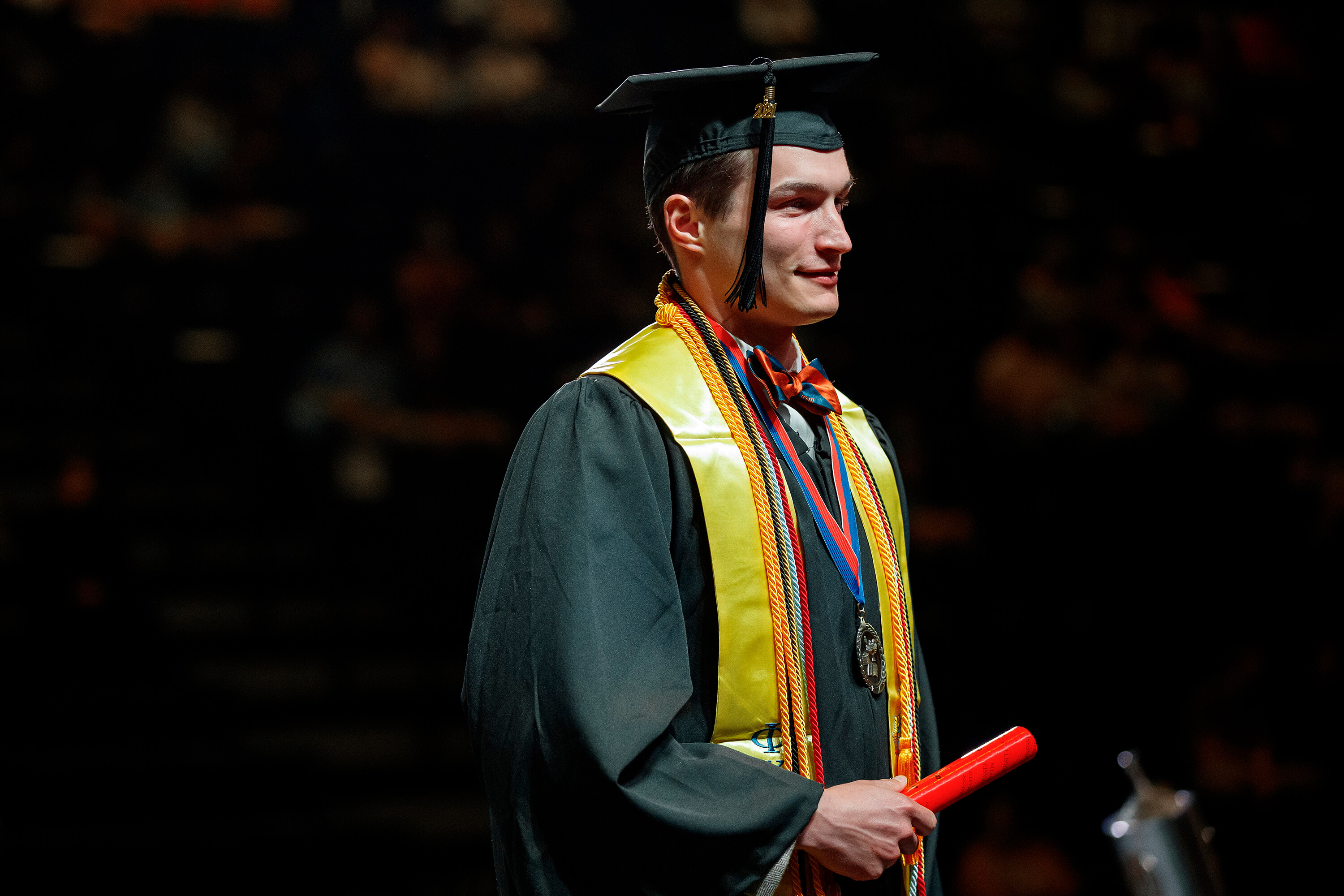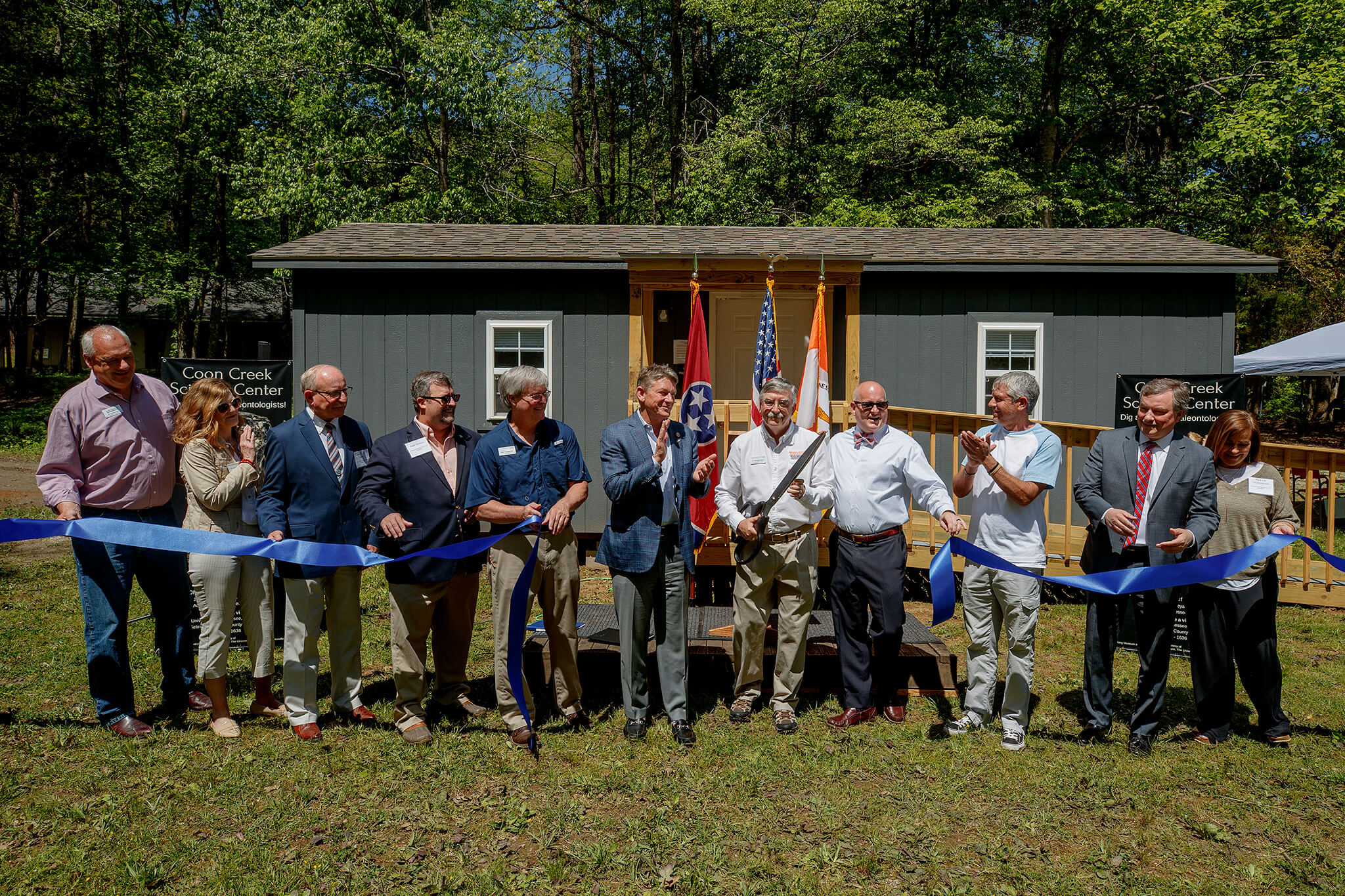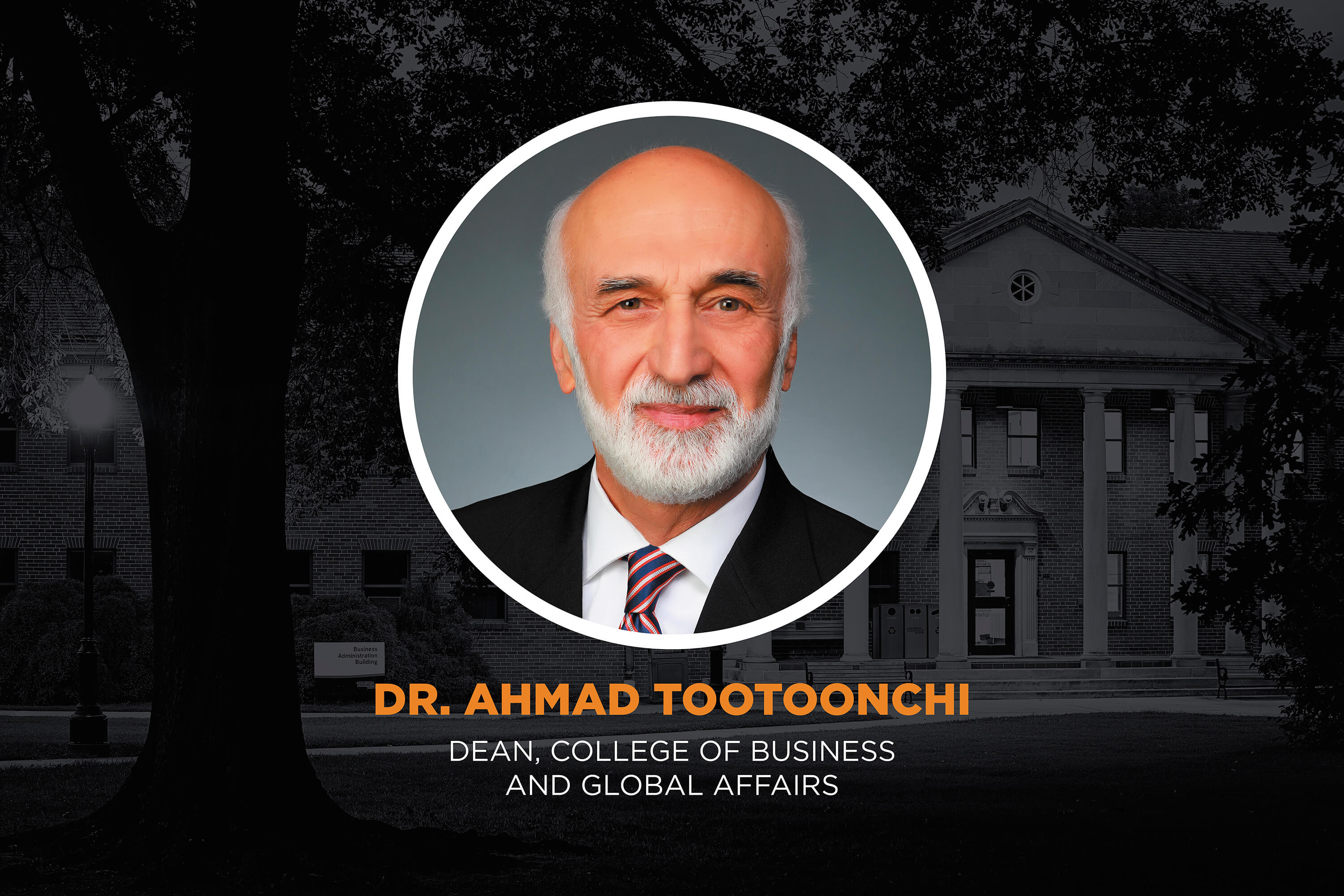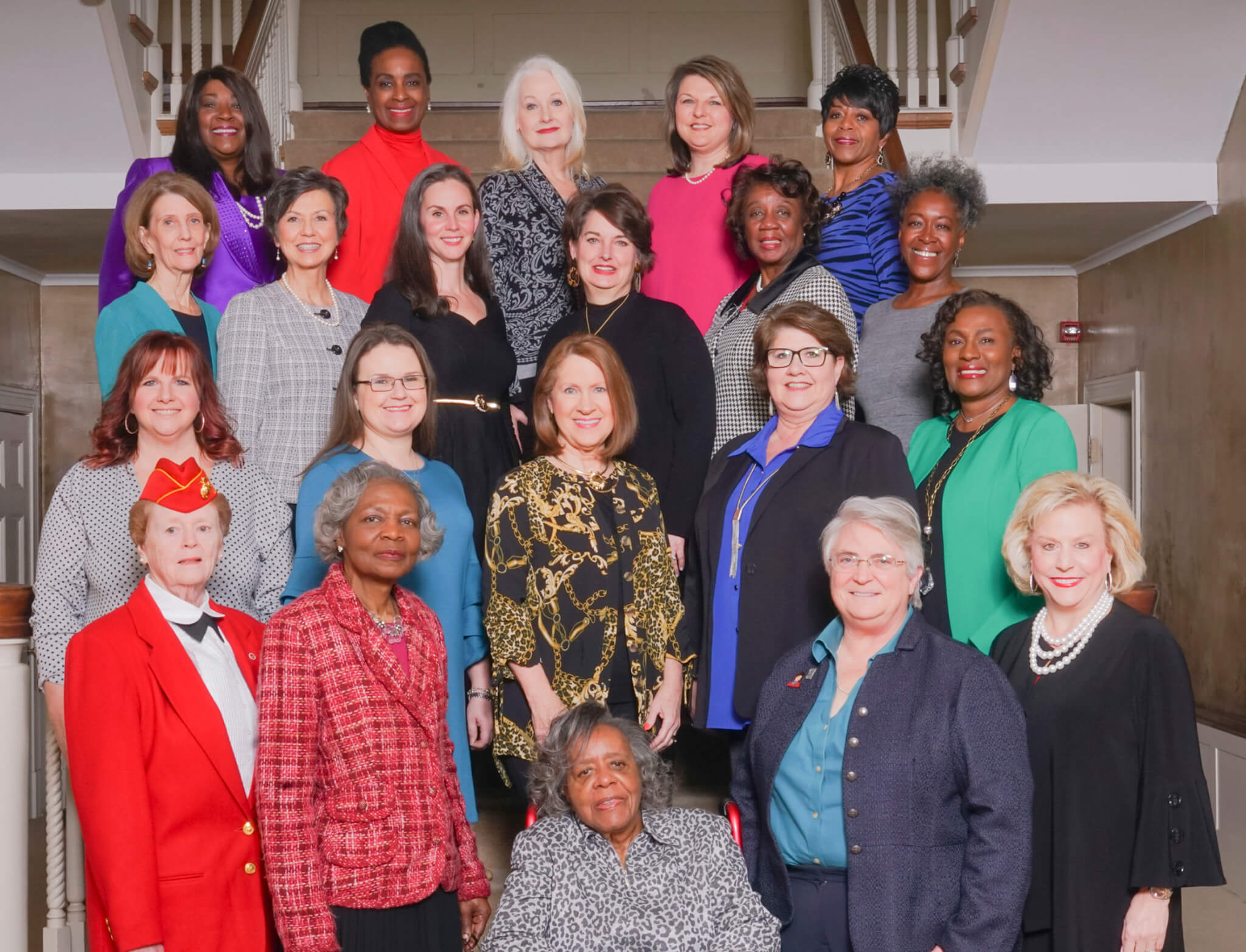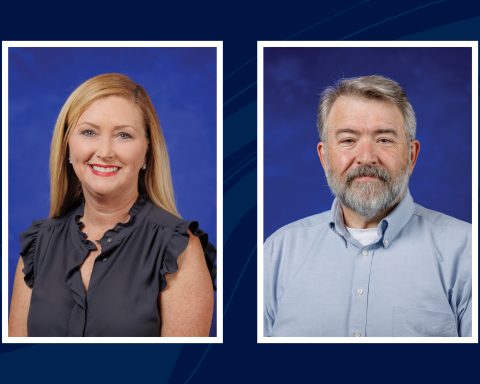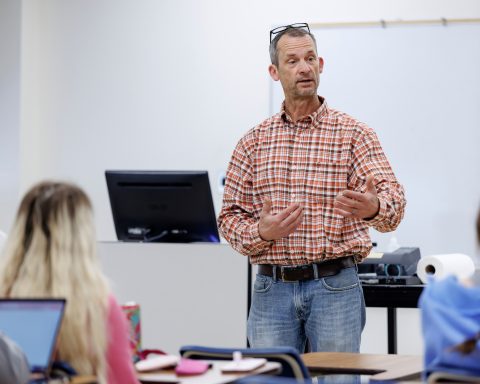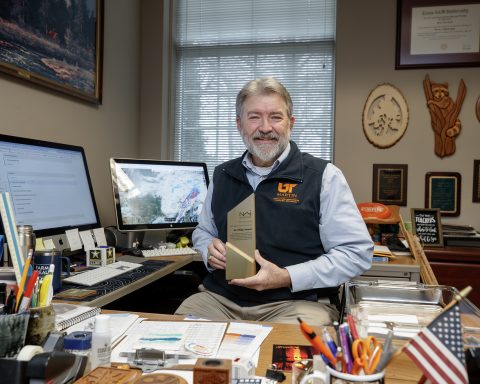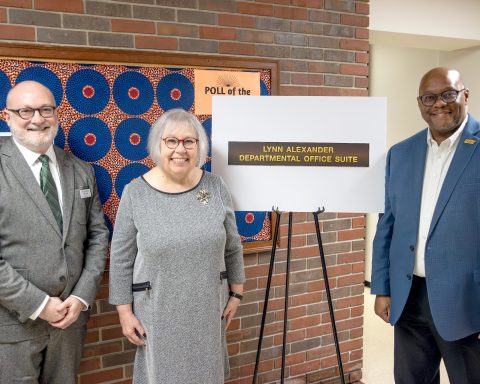Henrietta Giles, a lecturer of communications at the University of Tennessee at Martin, was interviewed by the BBC’s Matthew Bannister concerning her work with Civil Rights Activist Rev. Joseph Lowery who died Friday, March 27, at the age of 98. Giles’ interview aired April 3 on the BBC radio show “Last Word,” which honors influential figures who have recently passed away.
The interview can be heard at bbc.co.uk/programmes/m000gvml.
Growing up as an African American woman in the South, Giles, like many, looked to the work of Civil Rights activists like Reverends Martin Luther King Jr. and Lowery as guidance in her fight for justice and equality. Lowery, best known for his “fiery” sermons and passionate work with the Civil Rights Movement, was influential early on in Giles’ life due to his ability to be “brutally honest” when discussing topics that were important to him.
“I had always admired him just from the work that he did,” Giles said. “He became this fixture of someone who was always working in the Civil Rights Movement, who was always fighting for people who didn’t have a voice. I just always grew up… knowing that he was one of those folks on the frontline who was fighting for equality.”
Later in her life as she began collaborating with Lowery on various projects, such as co-authoring his biography “Singing the Lord’s Song in a Strange Land,” Giles felt that the “bigger-than-life character” she had admired for so long would become someone she’d actually get to know.
“He had the best sense of humor and that was something that was just so different because, in my mind, I just revered him so much,” said Giles. “He was quick with the snappy comebacks that would throw me off guard. … It was always something really funny that you wouldn’t expect him to say, but he almost had this grandfatherly appeal: very wise and each time I talked to him, (I) walked away thinking ‘Wow that was pretty extraordinary.’”
During the interview, Giles shared stories from Lowery’s life, detailing his perseverance and commitment to fighting for equality for African Americans and the opposition he faced daily because of his work, validating the character she had grown to respect over her lifetime. Through the trials of growing up as an African American in Alabama in the 1920s to being a founding father of the Civil Rights Movement to seeing everything he worked for come to fruition as he gave the benediction at the inauguration of Barack Obama, the first African American president of the United States, Giles says he dedicated his life, even until the very end, to fighting for those who faced injustice.
“It was a full-circle moment for him as sort of an older African American seeing the first black president of this country. It was a full-circle moment where you heard a lot of people saying, ‘I never thought I’d live to see the day that this would happen,’ and this was a similar sentiment that Rev. Lowery shared with all of his work during the Civil Rights Movement that that was such a momentous moment in time, moment in our history to see that take place,” said Giles.
Even as Giles and Lowery worked together on his book, the pair did not meet until the first book-signing almost three years after beginning the writing process, having spoken only through phone calls and email. After meeting, Giles says it felt like the two had been lifelong friends.
Lowery also participated in multiple podcasts and a documentary Giles produced about black sacred music. In the decade that the two worked together and the lifetime Giles had spent learning from him, the most important lesson she took away from her time with Lowery was that it does not matter how old you are, you are always capable of doing what is right and fighting for justice.
“You’re never too old to have an effect. You’re never too old to work for something that is important, something that is substantial,” said Giles. “I learned … not to stop fighting, not to stop trying to speak up for those who can’t speak up, for those who don’t have a voice or whose voice has been suppressed. Because even though he was older, I would dare say he fought up until the end for people who suffered injustice.”
The last time she saw Lowery was during their interview for the documentary as he sat relaxed in his home den surrounded by the awards he had received for the work he accomplished during his lifetime, like the Presidential Medal of Freedom. Giles cherishes the special moment she shared with her crew and Lowery as he shared stories and anecdotes about his life and the hard work so many others like himself had contributed to the Civil Rights Movement.
“It was always a joy to talk to him, it really was,” said Giles.
Even in his death, Giles has a steadfast belief in the work that Lowery accomplished in the shared fight for equal rights and the effect he had not only on her but everyone he came into contact with.
“What I would like people to remember about him is not to give up, that it doesn’t matter how old you are, if you have a voice, then possibly you can be the voice for someone else. You can help someone else,” Giles said. “I think that’s what I hope people remember about him, he fought until the very end. He was 98 years old and was still fighting.”
###

